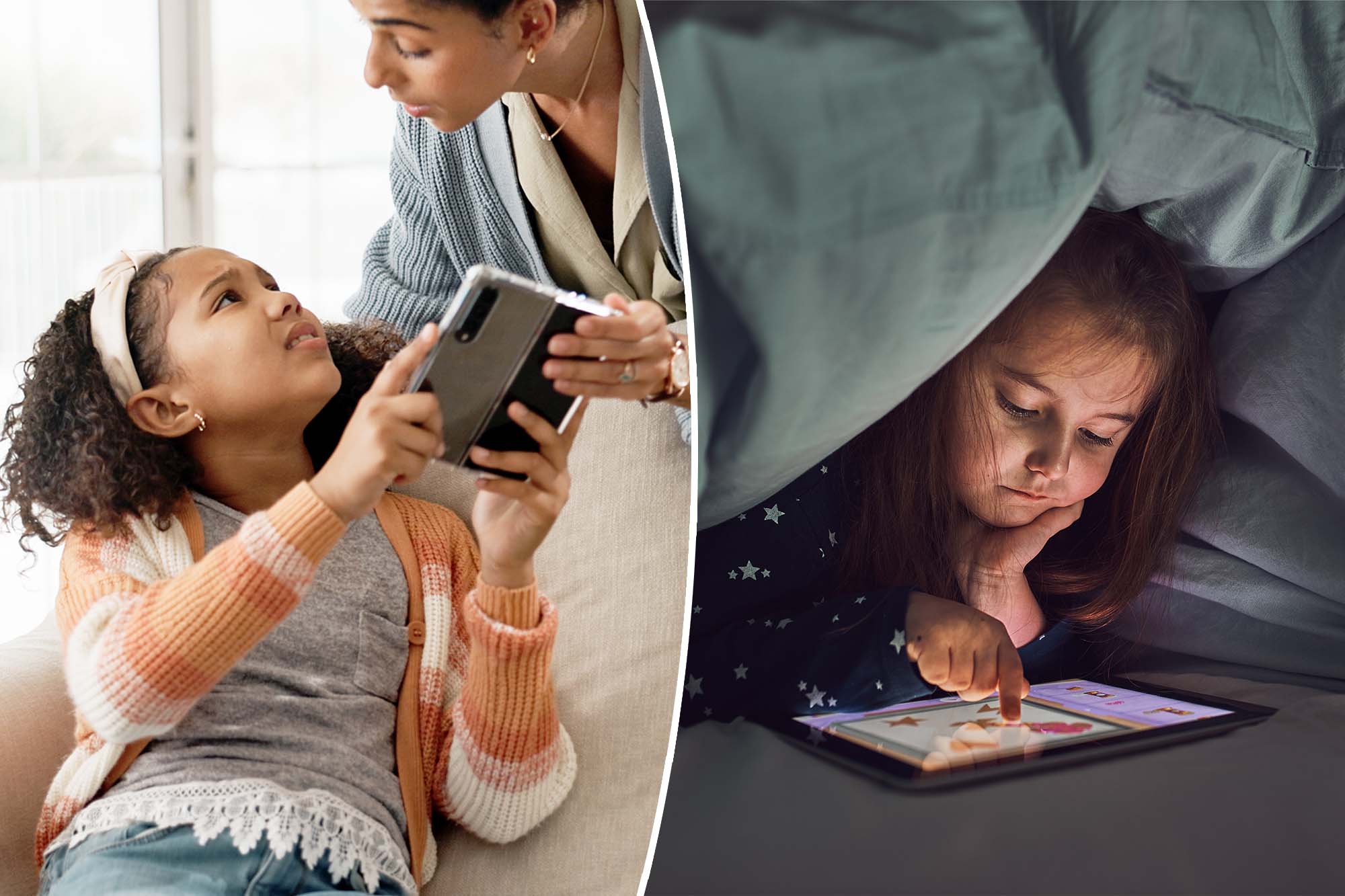
Parents spend approximately 96 hours fighting with their children during screen time each year.
This stunning statistic means that hundreds of fighting between parents and children are driven by modern technology.
This is according to a new study of 2,000 children’s parents in kindergarten to fifth grade, which aimed to investigate how screens could affect children’s relationships.
Behind these conflicts lies a deeper concern: two -thirds (67%) of parents are afraid of losing valuable moments with their children due to screen addiction.
Even more worrying, 41% of parents said they are afraid of losing their young childhood to technology completely.
The study, conducted by Talker Research on behalf of Angelq, a suitable browser for child age, revealed the most concerns of parents about the lives of their children online include exposure to internet predators (51%), accidental exposure to inappropriate content (46%) and on -screen addiction (45%).
Other significant concerns include internet attacks (44%), children seeking contents that are not appropriate for age (40%), the negative impact of social media (37%) and negative impacts on mental health (37%).
About three in five parents (61%) worries that a lot of time on the screen is replacing important elements of childhood development, such as building strong social skills and empathy.
Six in ten parents who allow their children to use the Internet said their online time was spent without supervision.
“This study shows how technology is currently in line with families instead of allies with them,” said Tim Estes, CEO and co -founder of Angelq. “Our children are losing years of their childhood – precious time they will never return – to exploit products to depend on them. We believe that technology must educate and empower, not distract and share families – and this starts by giving parents easier tools to manage screen time without daily war.”
Parents reported on side effects from excessive screen time, including irritability (27%), mood swings (24%) and full tantrums (22%).
Other strict effects included decreased attention space with offline activities such as homework (19%), high anxiety (14%) and sleep problems (14%).
Children are finding increasingly sophisticated ways to maintain their screen time, with parents discovering their children by stealing equipment behind their backs (39%), entering completely different devices (20%), and changing controls or permits without their parents’ knowledge (18%).
Other work routes included children who used “urgent” or “educational” modes (15%), the creation of new user accounts (13%), and the use of Syria or vowel commands to open applications (13%).
When children resist turning off an online device, parents agree to give 65% of the time. General Z’s parents, more than any other generation, said they gave “often” (28%).
“This model of resistance and delivery creates a dynamic of power that undermines parents’ roles and strengthens screen dependent behavior in children,” Estes said.
These conflicts are most likely to occur leading to dinner (64%), disrupting the important time of family connection.
The most common disagreement center at the length of permissible time (43%), content types or applications that children can enter (18%), and require parents’ approval for watching videos or games (18%).
Half of the parents (52%) who allow their children to enter the Internet said they wanted to wait longer before giving their children access to the Internet equipment.
This regret was most prominent among General Z (63%) parents, compared to millennia (53%) and Gen Xers (50%).
The approaches of many parents at screen time are influenced by their childhood experiences with technology, with 34% saying that this has affected their parenting style and the choice to limit their children’s access to the Internet.
Despite these challenges, parents accepted positive aspects of screen time, including viewing their children to explore their interests (60%), access to educational content (59%), ability to learn lifelong digital skills (58%), increased intercultural consciousness (25%) and the opportunity to connect with other children with similar minds (24%).
“These findings highlight the delicate parents of the balance of the balance, wanting to protect their childhood while also preparing children for a digital world,” Estes added. “We admit that screen time is not essentially bad, but today most of the options are. We want to re -fit how children use technologies to create healthy habits that enable young people to dream of ideas and create them in the real world. We are committed to helping families set the boundaries that work, so technology remains a tool.”
Survey Methodology:
Talker’s research surveyed 2,000 parents with children in kindergarten up to fifth grade; The survey was ordered by Angelq and was administered and carried out online by Talker Research between March 7 – March 11, 2025.
#long #parents #spend #fighting #children #screen #time
Image Source : nypost.com